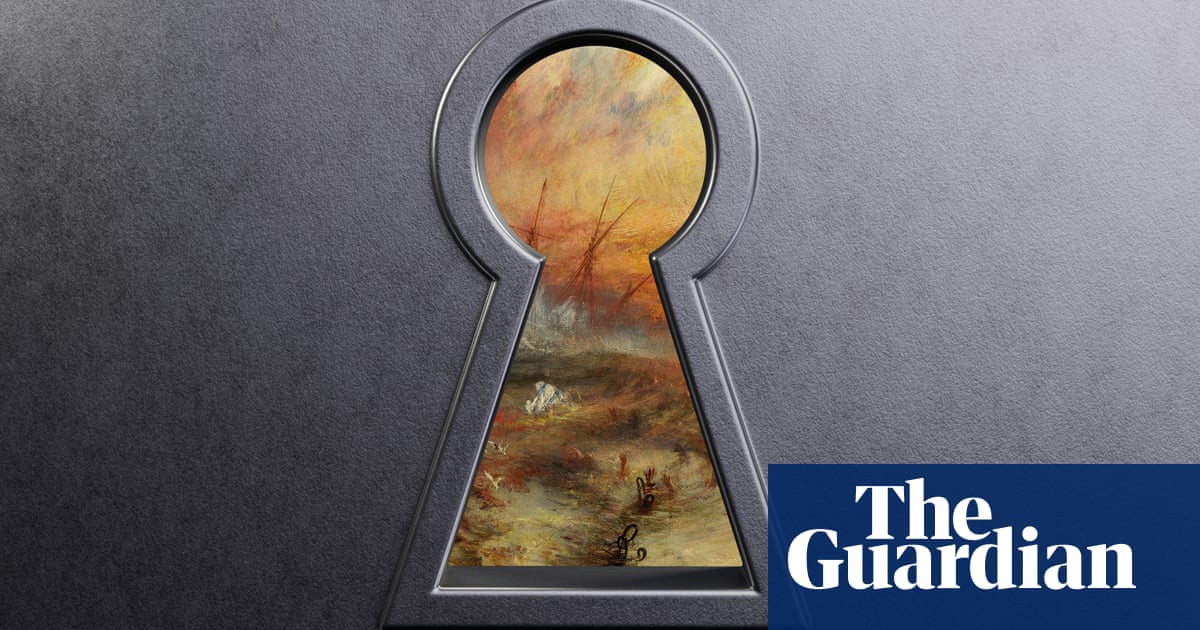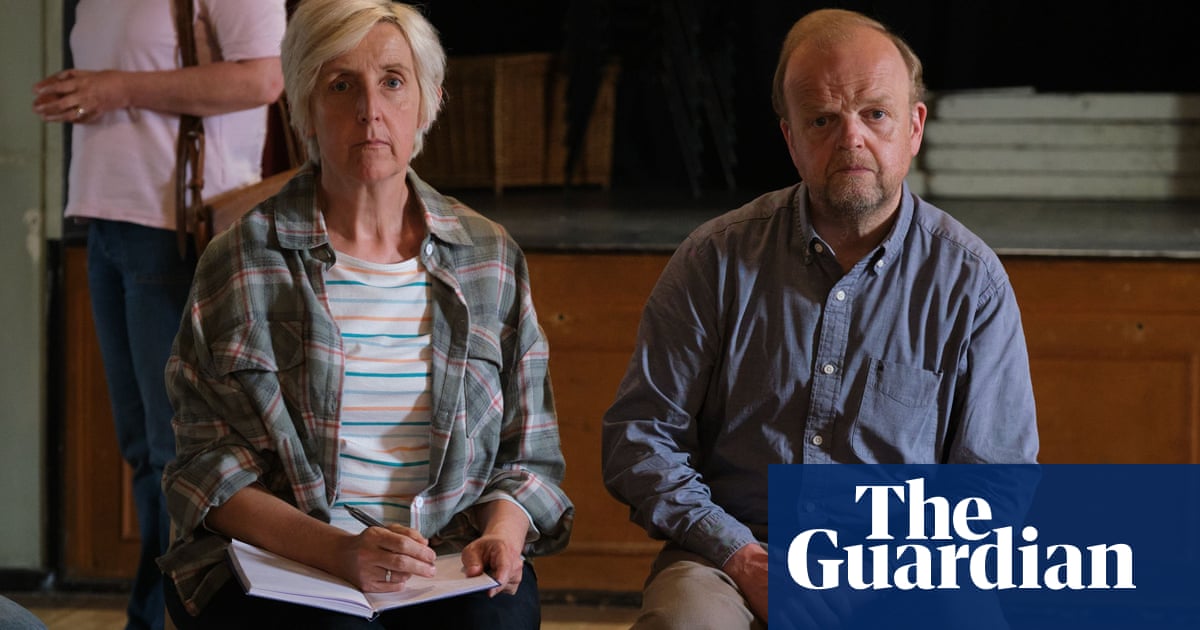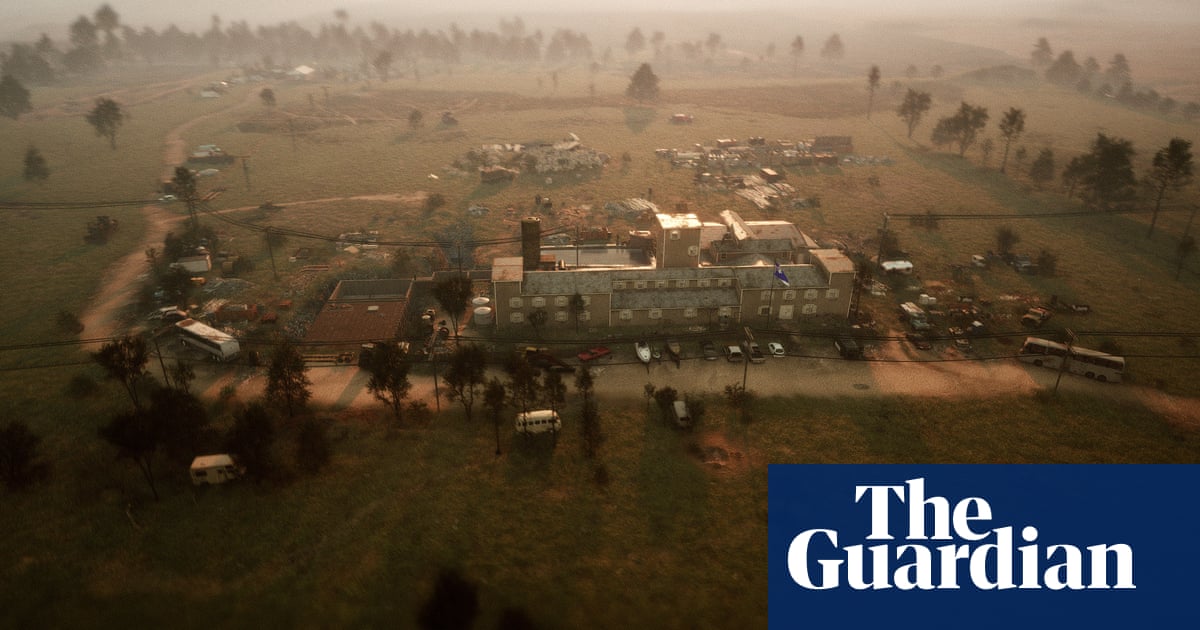
In 2015, when George Mpanga, AKA George the Poet, stepped back from releasing music, he found himself with a dilemma. On one hand, his fans wanted a new album from him, and on the other, he needed a reset. Podcasting was the solution, allowing him to tell longer stories in a new style.
The podcast he created with producer Paul Carter, Have You Heard George’s Podcast?, was influenced by the Disney movies he grew up with. He turned themes from the series into “characters” that could talk and feel, to create a “universe of fantasy” that any listener could find their place in.
Initially, the plan was to tell stories that would help a young person come to grips with what was going on in the world – like a current affairs series. But George ended up talking about his own dreams and insecurities, too. The result is a series that experiments with form, flipping between drama, documentary, poetry and music, while tackling everything from the Grenfell disaster to the life of Jay-Z. “If the first chapter [series] was a reintroduction,” he says, “the second was a storytelling experiment, and this time I have combined both to break down the economic opportunity provided by music and creativity …”
Black music
Black music is omnipresent in popular culture but we don’t always have a clear understanding of what’s going on within the music. Black music plays a multifunctional role in Black society. It’s a mental health service, it’s a town hall, it’s a friend, it’s a jobs programme, it’s a broadcasting service. It can provide moral support, speak truth to power, and it can change the political landscape. From dancehall we got hip-hop; from hip-hop, garage; from garage, grime. It all shaped my poetry.
Uganda
Uganda is depicted as a woman that I have a complicated relationship with. Sometimes I think of her as the mother I didn’t get to grow up with, other times I look at her like my childhood sweetheart whose exciting but unstable lifestyle was something I could never fully commit to. Through the podcast I express my bittersweet feelings for the country of my parents. She always welcomes me with a smile but behind the laughter there are insecurities that seem to get worse and worse with time. Her politics. Her economics. Like millions of Ugandans across the world, I love the country but don’t know what the future has in store for her.
Busy
Busy’s character appears throughout the podcast and represents the voice of ambition inside me. When I was 15 years old I used to spend a lot of time in the barbershop but I was always on my phone, always trying to sell something, so they called me Busy Signal, after the Jamaican dancehall artist. I was doing my GCSEs, I was learning about girls and I needed to make money, so my ambition was really accelerated. Busy is named after the kid that I was. I present him as a bit of a sociopath, because ambition can be exhausting.
Jay-Z
The story of Jay-Z’s early years is so powerful because it is so typical. Jay’s father experienced the traumatic loss of his brother, leading to a downward spiral of depression and drug abuse, which left the family vulnerable during the crack epidemic of the 80s. For much of African America and Black Britain, this became a common thing. I glimpsed it in my friends’ lives as a kid, but I didn’t have the language to unpack what was happening. Studying sociology at A-level helped, but the more I learned, the more I realised that hip-hop covered all of this. Hip-hop is an ethnography: these guys tell you their life stories. With Jay-Z, we have 25 years of a memoir in the form of albums. So instead of me saying “economic miracles can happen in the midst of structural disadvantage”, I can just say: “Jay-Z”. Then we can have all of these conversations.
Britain
We all relate to this beautiful country in different ways. I also portray Britain as a woman that I have a complicated relationship with. In some respects she’s like a child I grew up with and in others she’s like a step-mum. Ultimately, I owe her a lot, and I want the best for her. So I try explaining to Britain what’s going on inside me and understanding all the things that are going on with her.
The family
My nephews’ open-mindedness shaped my approach to the podcast. Children will offer a take that is unique and unfettered because of what they don’t know. Another recurring character is my mum. A lot of the time I quote her and reference moments that I have had with her. In this chapter I get to properly introduce my fiancee Sandra. I wasn’t thinking much about love and marriage two years ago but I was able to see the opportunity for happiness and support that we could give each other. No men that I grew up listening to would talk about family or love like that, so this is all part of encouraging young listeners to embrace different sides of themselves.
The market
The market is the mechanism through which ideas spread. If it wasn’t for the music industry, then the innovations that came from within impoverished Black communities –– hip-hop, reggae, blues, jazz –– would have stayed in the community. But because there were industries that could take them out into the world, those innovations reached billions of people. , there is obviously a dark side to the market. The fact that someone is willing to pay for something does not automatically make that thing good. A lot of my friends ended up in the streets selling drugs. Why? Because someone would pay, and they needed the money. By depicting the market as a physical space where I share my perspective, I’m encouraging creatives to be open-minded about how to make money from their craft.
The general public
We’ve seen in the past five years the so-called war on wokeness. I don’t believe there is a binary wokeness; I believe that we’re all trying to express ourselves. We leave school with different levels of information about the way the world works but after school we are not given space that is committed to learning each other’s perspectives. We’re constantly trying to navigate a minefield of understanding. Ultimately, what most of the general public can agree on is that art gives us space to talk.
Sound advice
Producer Paul Carter on how to make award-winning sound design
One of the biggest changes for us this chapter was recording the entire podcast with the BBC Concert Orchestra at Abbey Road. Nothing can compare to hearing 45 musicians turning marks on a page into music. After a year in lockdown, it was a pretty surreal experience.
Like in previous chapters, we used sound design to create an immersive experience. This might be adding the sound of rain, or manipulating audio so it sounds like a song is playing from a radio in a bar or from George’s car stereo or from a huge sound system. Throughout the podcast, there are characters walking through swamps, the sound of key taps, and even an appearance from a seemingly sentient Alexa device. We end one episode on the edge of a cliff that is collapsing as one of George’s dreams ends.
In Episode 20, George tells the story of early Jay-Z. We got our hands on some Jay-Z a cappellas from various records. I’d seen a video online about British composer Daniel Pemberton’s work with DMC champion DJ Blakey scratching orchestra recordings for the animated Spider-Man movie. We asked him to scratch all the Jay-Z samples that appear across the episode.
George also tells the story of America and Britain following the second world war. I’d written a piece of music that he’d had on his phone for about six months just searching for the appropriate topic to use it for. We layered it with archive audio from Harry S Truman, Harold Macmillan, Queen Elizabeth II and voices from the Windrush generation. To me, it sounds like what history lessons might sound like in the future.












